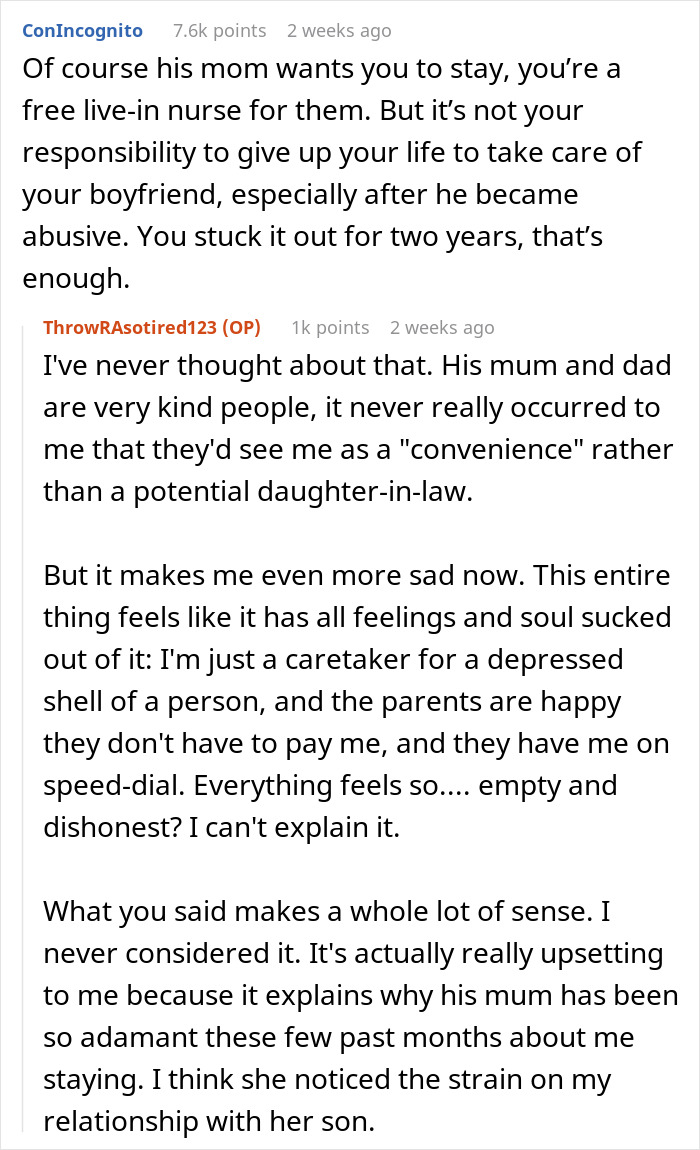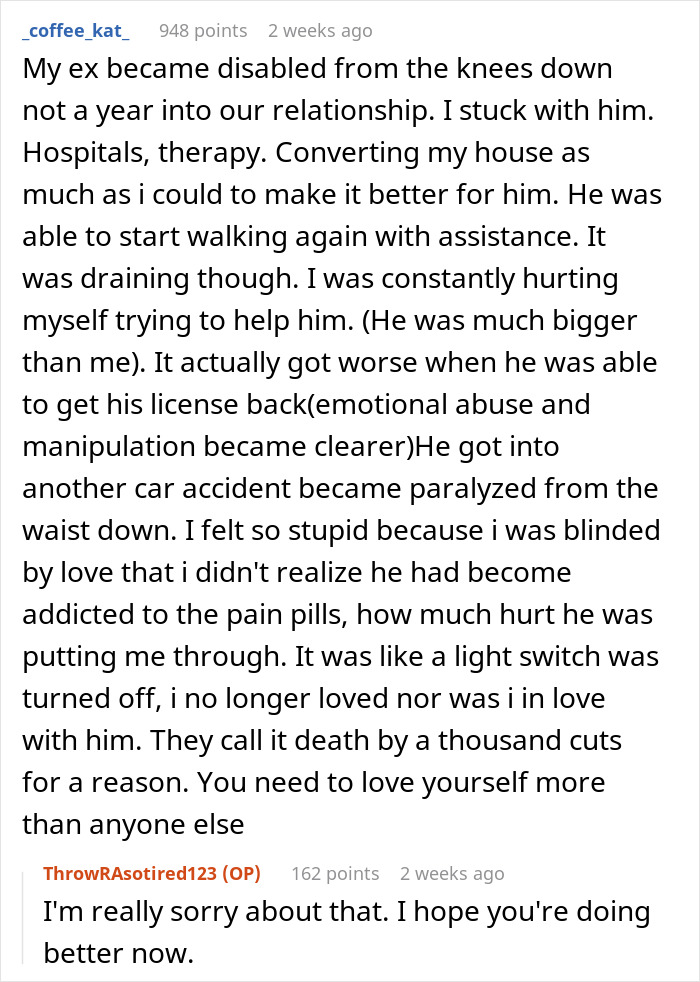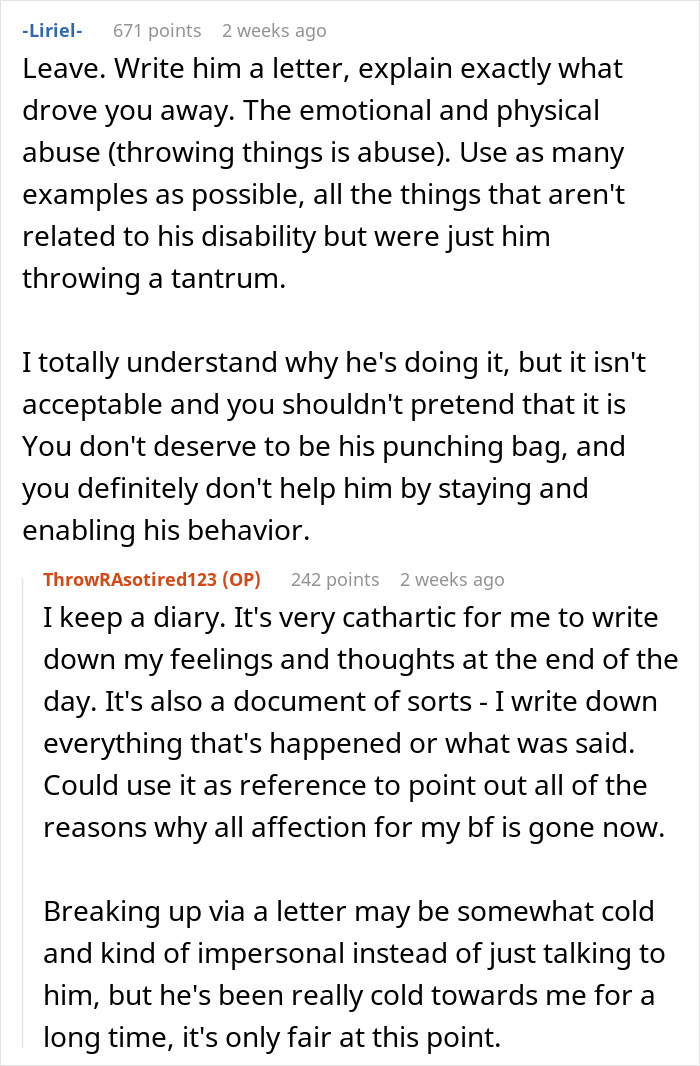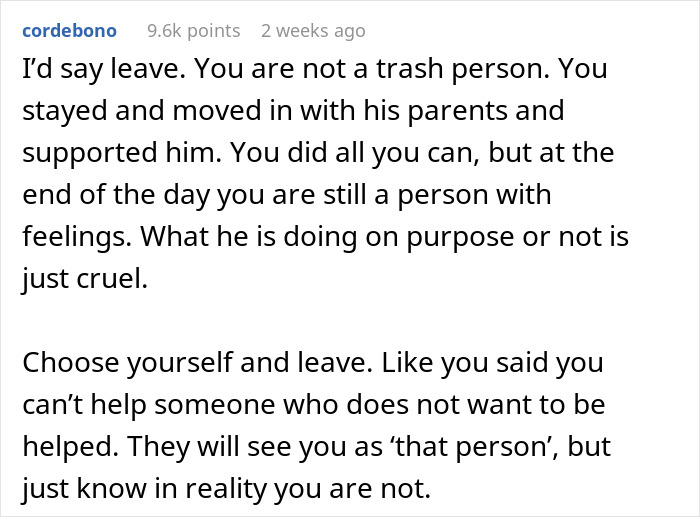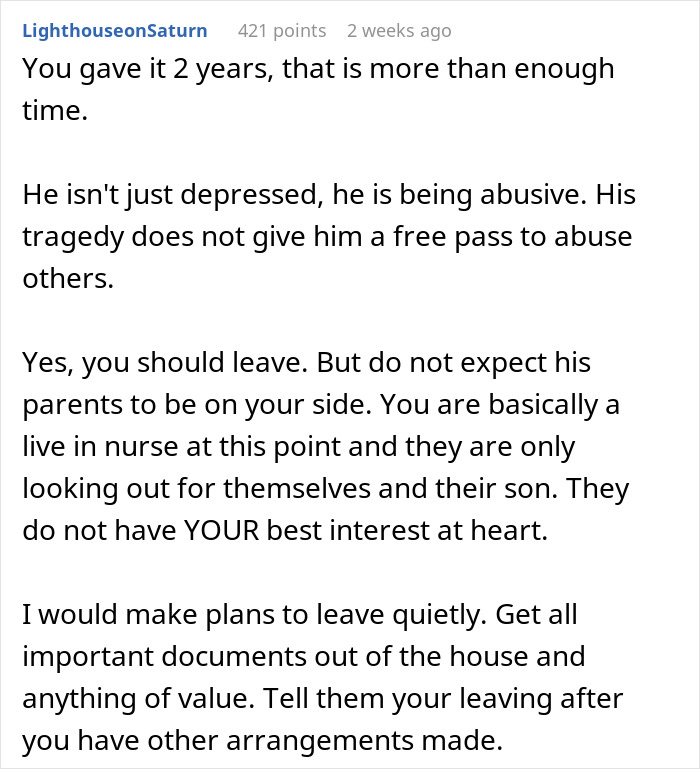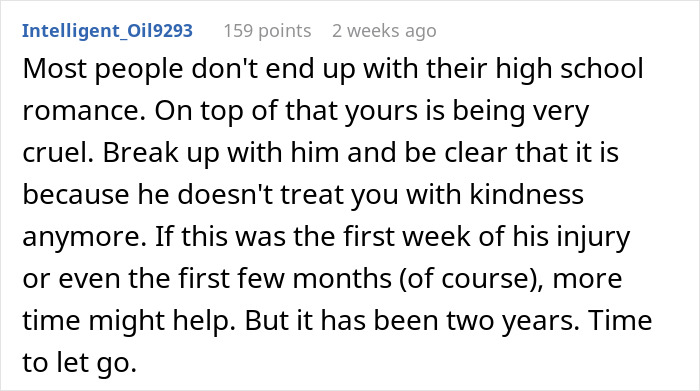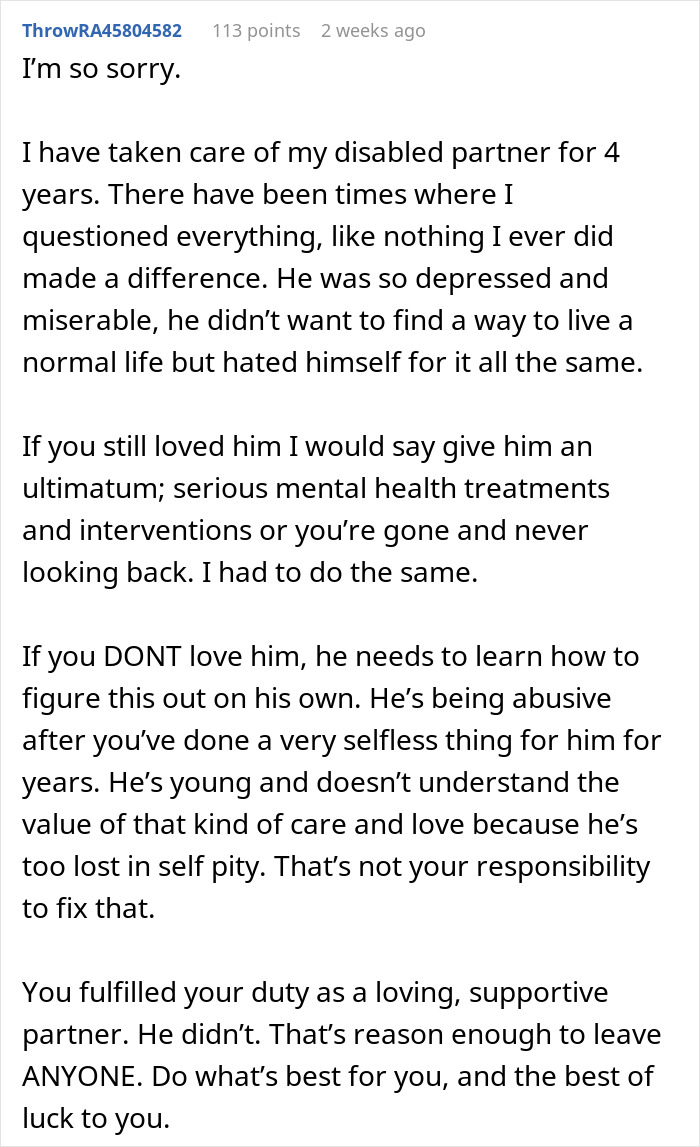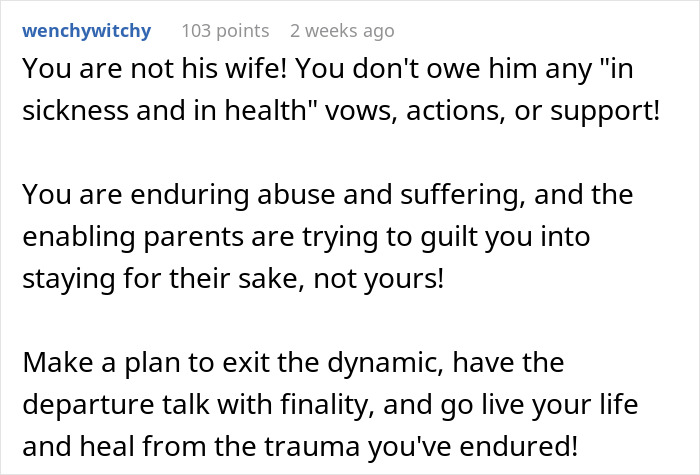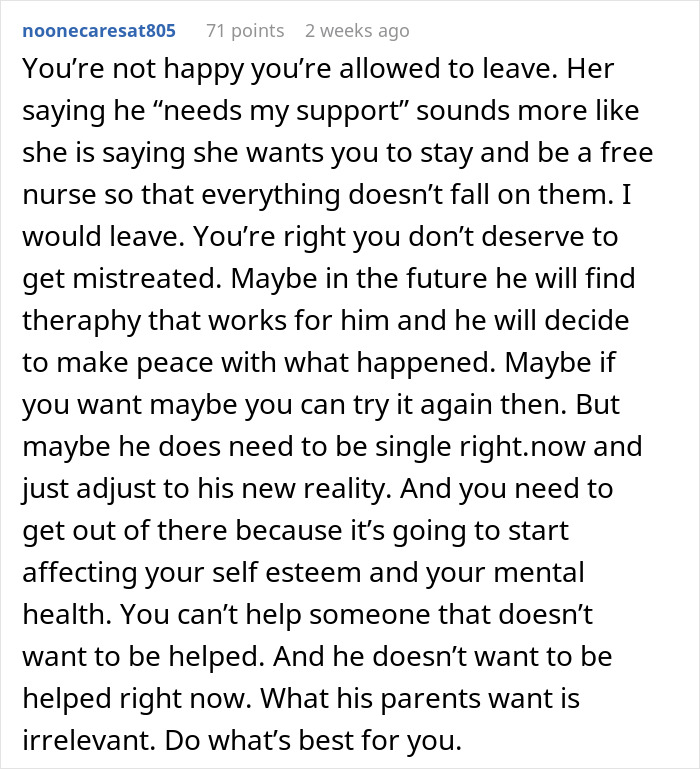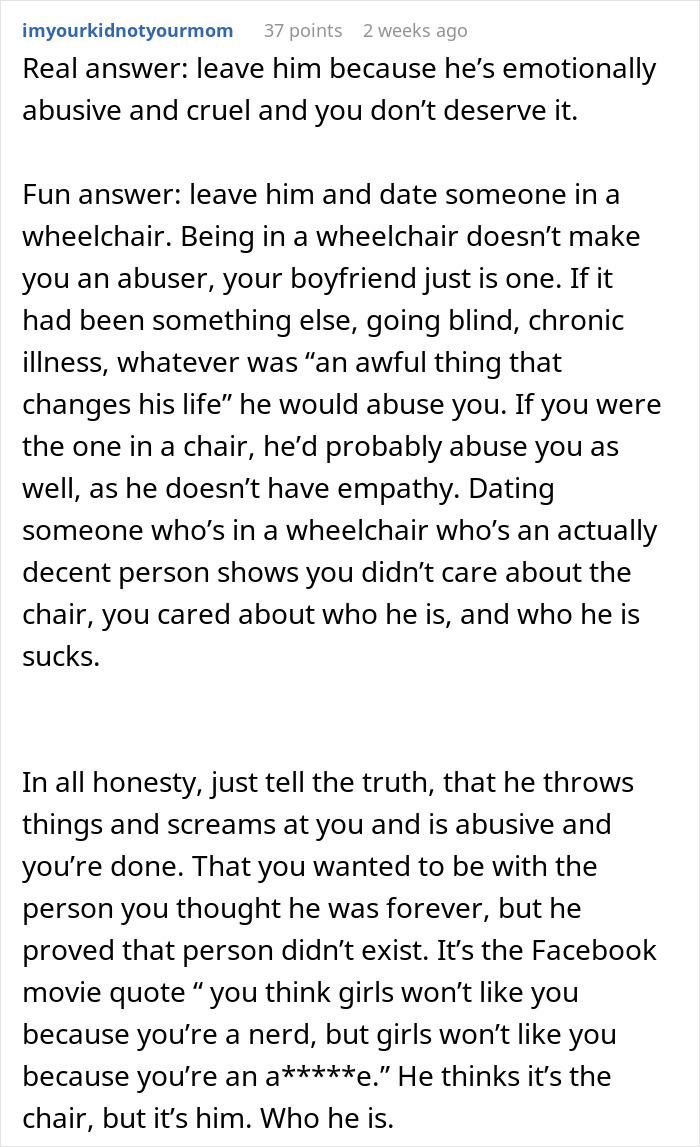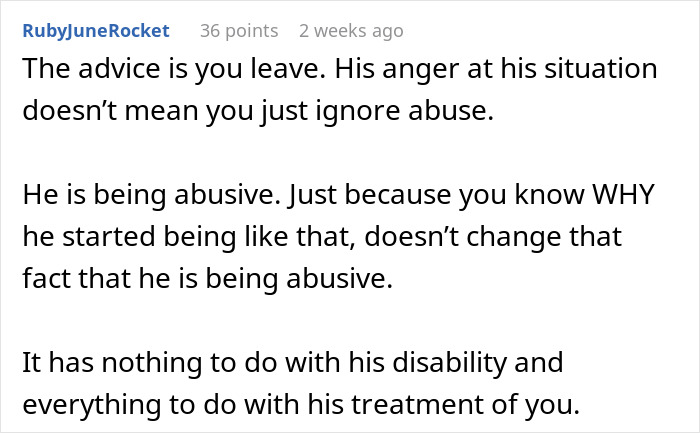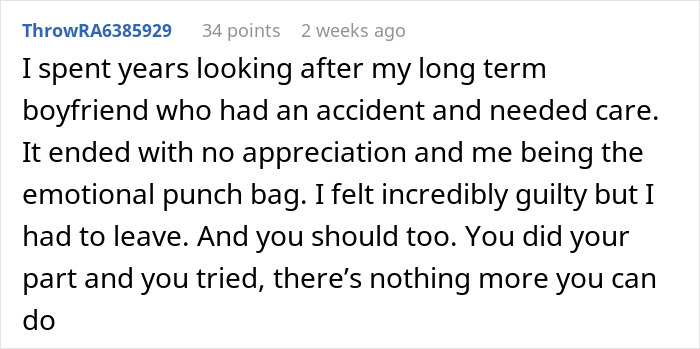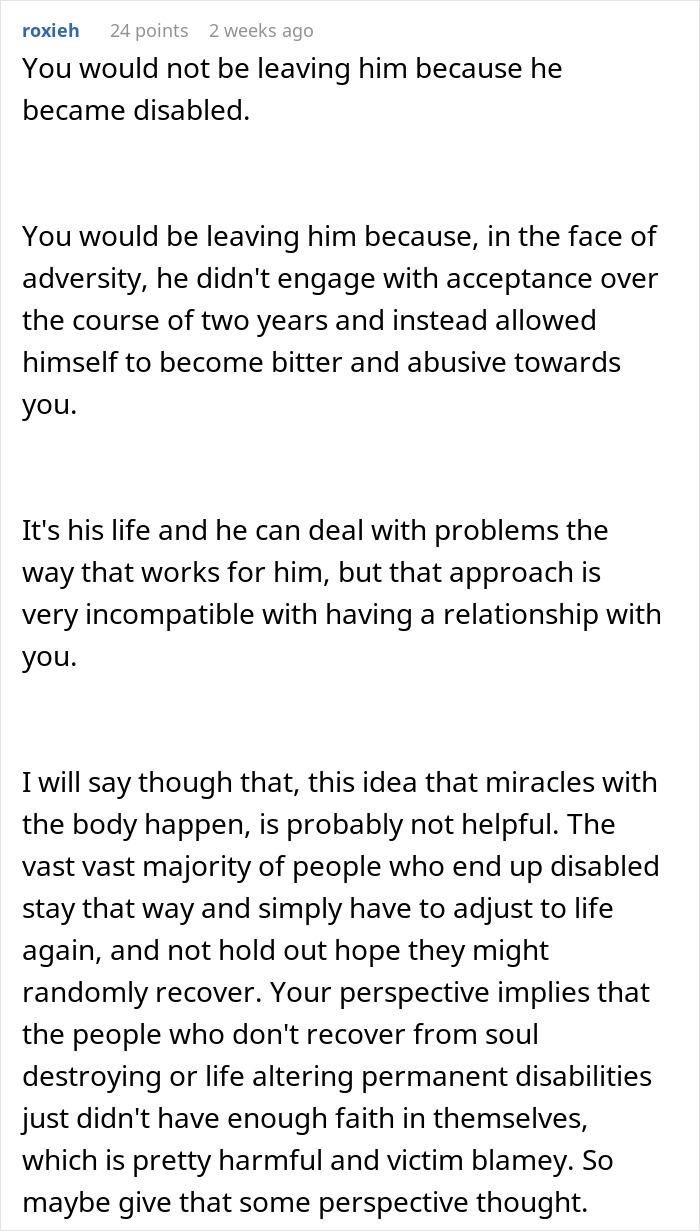A disability doesn’t have to be a death sentence. In fact, one in four Americans say they live with some form of disability. However, not everyone is able to cope with it the same. Some people fall into a deep depression, and not even their loved ones can help them.
This young woman found herself at a crossroads after her boyfriend became paralyzed from the waist down. Not being able to take his abusive behavior anymore, she’s now thinking about breaking up. Except she’s not sure how to deal with the guilt. So, she asked for some relationship advice online.
It can be hard to navigate a relationship after one partner suddenly becomes disabled

Image credits: SHVETS production / Pexels (not the actual photo)
This woman described being tired of her disabled BF’s apathy and cruelty but feeling guilt for thinking about leaving him
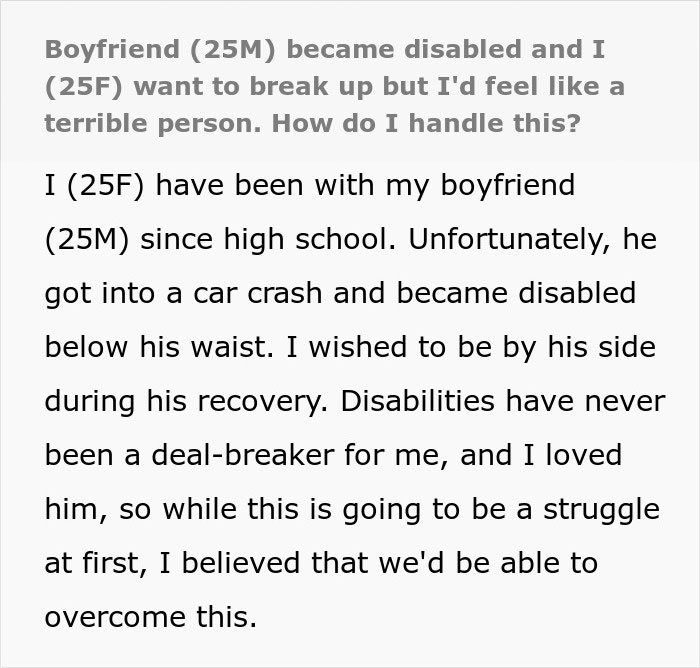
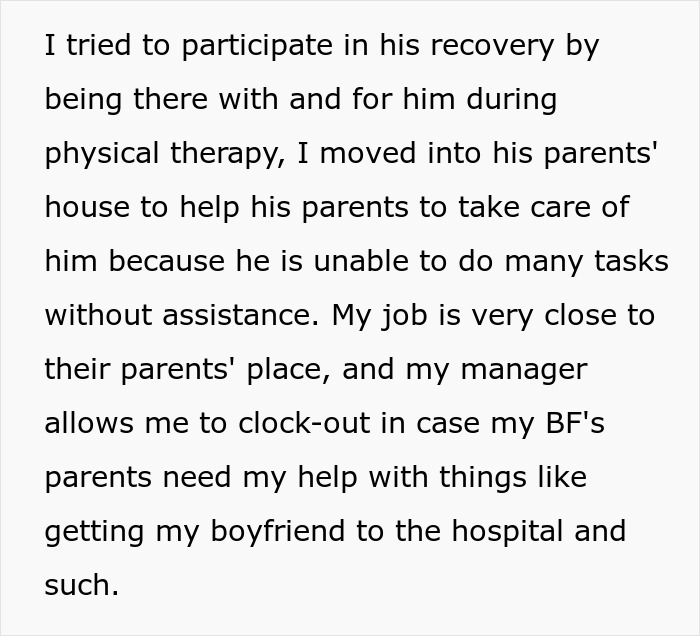
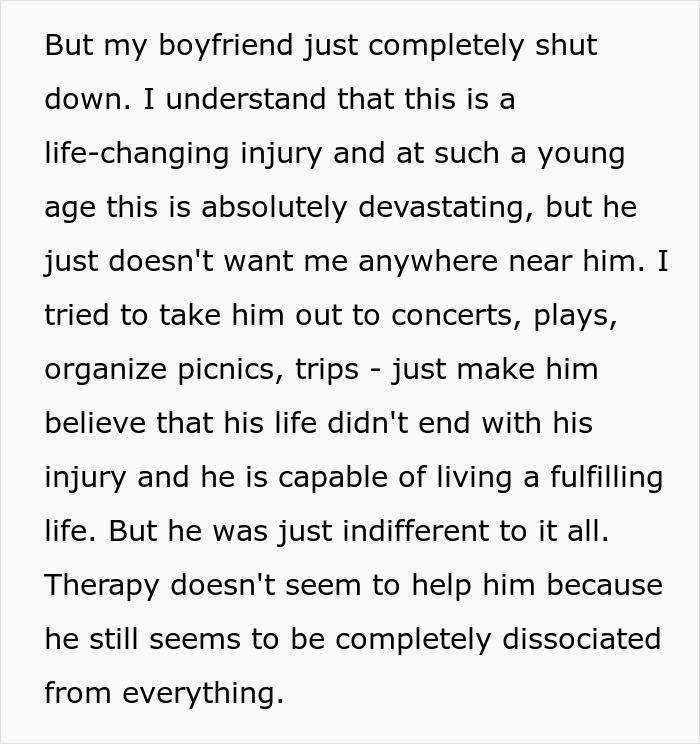

Image credits: Austin Guevara / Pexels (not the actual photo)
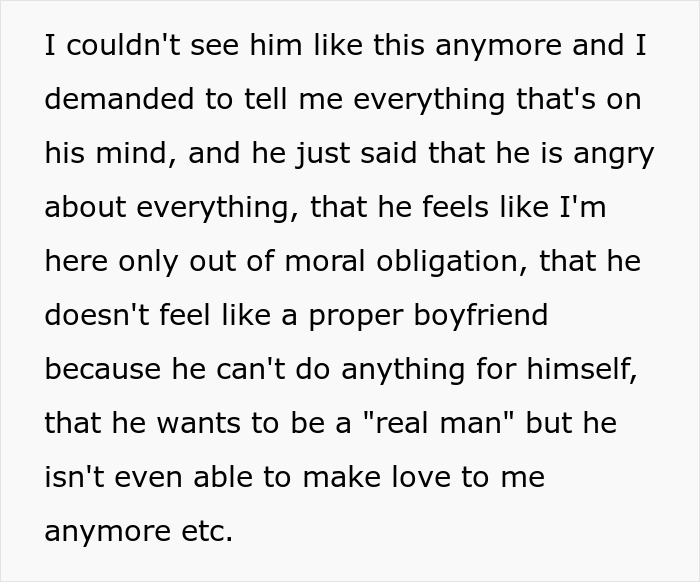
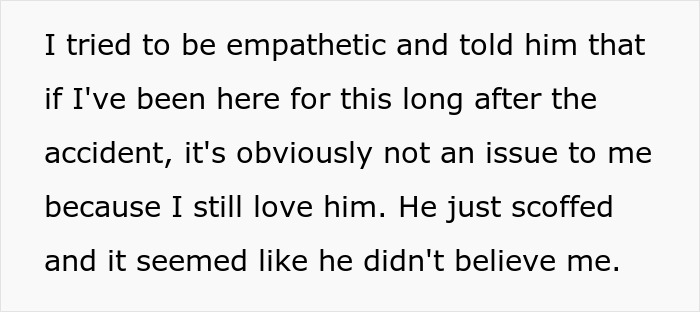
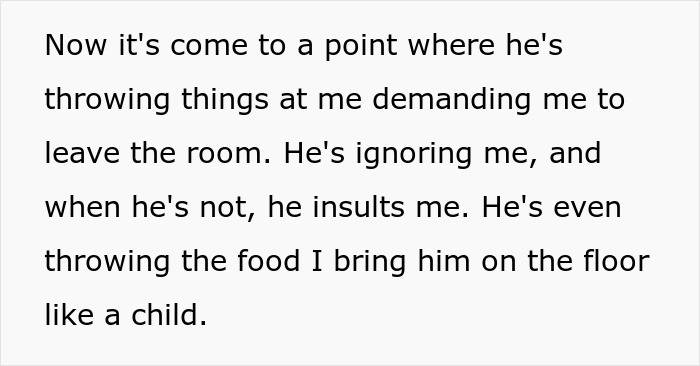

Image credits: MART PRODUCTION / Pexels (not the actual photo)

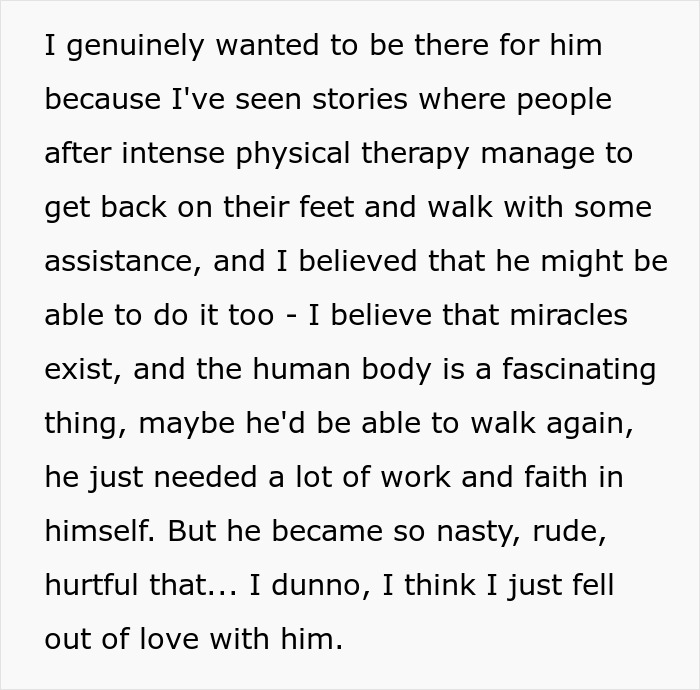
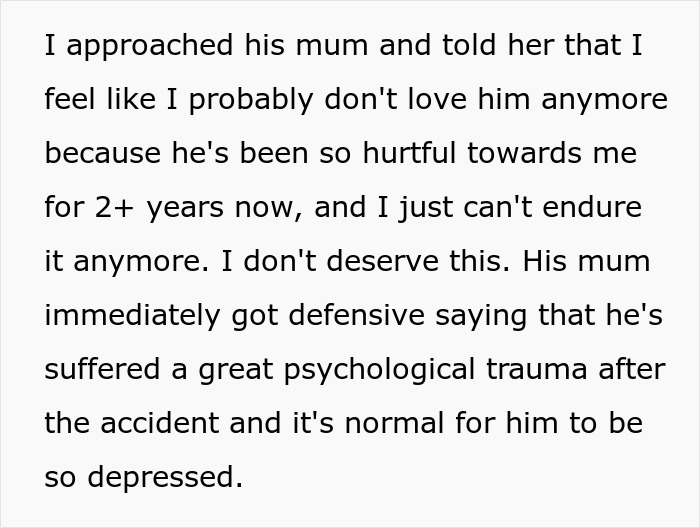
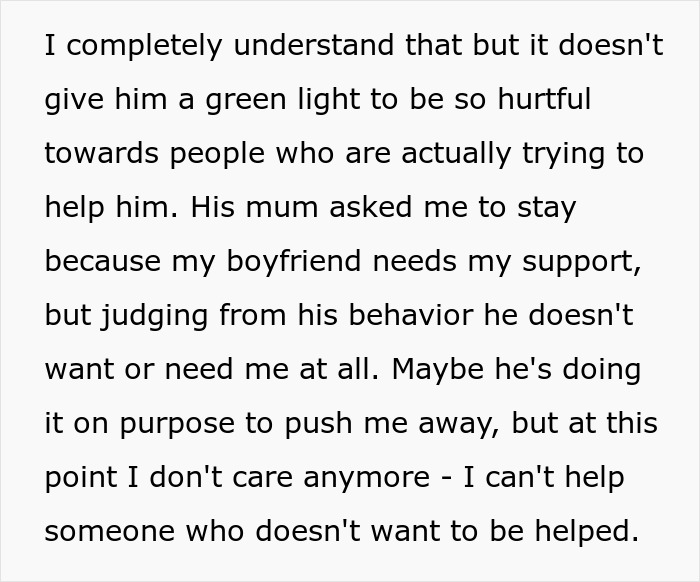
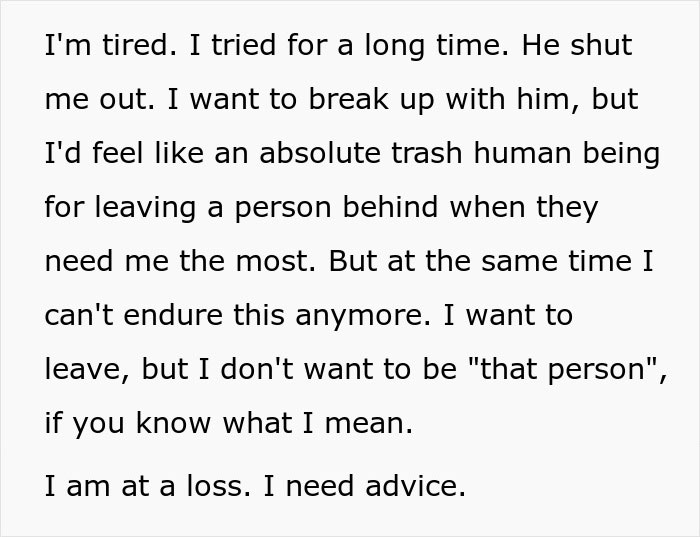
Image credits: ThrowRAsotired123

Image credits: Vera Arsic / Pexels (not the actual photo)
Staying in an unhappy relationship is never the answer, even if your partner has a disability
A partner becoming disabled is probably one of the biggest challenges a couple can face. Your whole world changes, as most long-term plans crumble away and you have to start building a new life for the two of you.
In some ways, a partner acquiring a disability can be the ultimate test for a couple. Some couples manage to stay connected and communicate about their needs, maybe even making their relationships stronger. Others, unfortunately, might have one partner shutting down, as happened in this case.
Breaking up with someone who has a disability involves a lot of guilt, as no one wants to be, like the author said, “that person.” The partner faces a lot of questions: who will take care of the person after the breakup? Can we stay connected without being a couple? Will they understand why I’m doing this?
“But isn’t breaking up with somebody because of their disability morally wrong?”, you may ask. Well, staying because of it would be even worse. “Relationships sustain because of what you are as a human being,” Sexuality and Disability claims. Staying with someone because they’re disabled reduces them to their disability, and that’s just plainly not true.
Ultimately, no one should stay in a relationship that is bad for them. If a person doesn’t feel loved and appreciated, it might be time to say ‘goodbye,’ even if the partner is disabled. “Being in an unhappy relationship is often far more damaging than not being in one,” experts at Sexuality and Disability write.

Image credits: SHVETS production / Pexels (not the actual photo)
Couples need to be honest about the disability in differently-abled relationships for them to be successful
After reading stories such as this, it might seem that all inter-abled couples are doomed. But that couldn’t be farther from the truth. While dating a disabled person certainly comes with its challenges, there are many happy differently-abled couples.
The secrets to a successful inter-abled relationship are mostly the same as with any other regular couple. At least according to Ben Mattlin, author of In Sickness and In Health, who’s been in an inter-abled relationship with his wife for 32 years.
“Good communication, empathy, generosity, trust, respect, kindness, a sense of humor, open-mindedness, sharing, helpfulness, etc.,” he said in an interview with Vice. However, there is one thing he emphasizes: being honest about the disability. Or, rather, “the difference between the one who has a disability and the one who doesn’t.”
One mistake people often make, according to Mattlin, is to blame all their misfortunes on the disability. That includes unnecessary obstacles and society’s unfairness. “It’s not the disability’s fault if, say, it’s difficult to go out at night because the buses and nightclubs aren’t accessible, or if you need a break from each other but have no way to pay for personal-care assistance,” Mattlin explains.
Cristina Dorazio, PhD, an individual and couples psychologist in New York City, claims that being in an inter-abled relationship even has advantages. “It forces the couple to be brutally honest with themselves and each other, which only deepens communication and connection. These experiences allow couples to focus on all aspects of their lives, not just their physical limitations or abilities.”
People advised the young woman to put herself first; perhaps the breakup will be a wake-up call for the boyfriend to get some help
